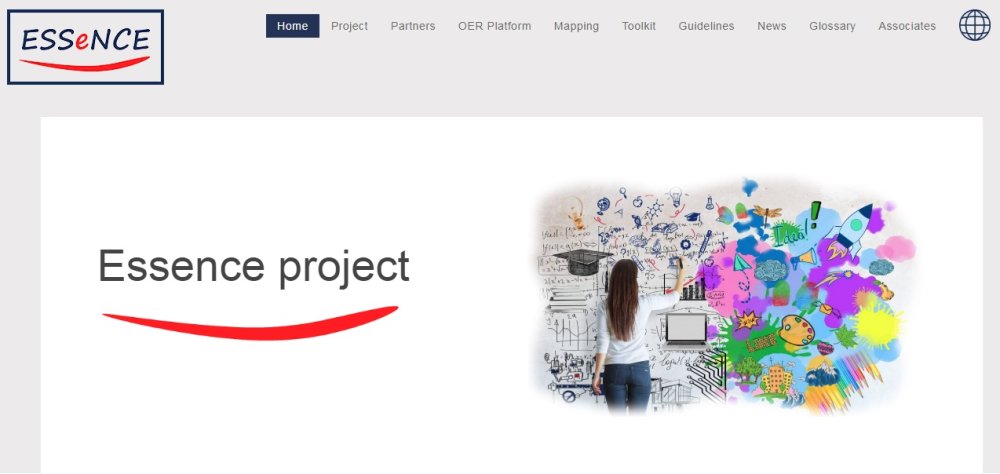
The ESSENCE project’s objective is to improve employability opportunities for students by developing their soft skills. This will lead to better engagement in the labour market as students will be offered professional development paths through soft and “intangible” skills training.
ESSENCE develops and offers a flexible module-based learning process: users can access the modules “on-demand” and “on a need basis” to enhance their soft skills and professional self-empowerment.
Back in 2016, analysts from the World Economic Forum predicted a major change by 2020 in the “top 10 skills” for employability, recruitment, career development and business competitiveness. According to their report, the opportunity for fresh graduates and university students to compete in the job market would depend increasingly on their soft skills rather than their technical competences.
WEF findings have been confirmed by numerous international academic resources that highlight the relevance of soft skills for employability in the new decade.
Therefore, ESSENCE will offer students opportunities for soft skills development (such as taking initiative, critical thinking, creativity and people management) to strengthen their employability competitiveness in the labour market. The project’s innovative methodology that will lead partners to the creation of several strategic results:
1. Multilingual online interactive platform (OER Platform)
2. Transnational report highlighting the “most wanted” soft skills for employability in the EU labour market (desk research + survey conducted among 100 employers)
3. Online business glossary to be used as a map of concepts as well as a reference tool to help students navigate across a range of soft skills
4. Custom-made training courses in soft skills for better employability
5. Visibility events in the participating countries and international awareness of the project
Moreover, partners believe that project results will be disseminated, mainstreamed and made visible to over 4 million contacts – an estimated number of users engaged via offline and offline communication.
The transnational and cross-sectorial assessment of soft skills for employability is available now online – the project’s second intellectual output deliverable: “Mapping soft skills with employability – the most desirable soft skills among job applicants”.
The executive summary includes three sections:
Part 1. Tools & Good Practices – Research has shown that, at the recruitment stage, the assessment of whether the candidate has appropriate soft skills is based on observing the person during the interview.
There is no evidence that companies carry out any special competence tests that show what competences (and at what level) a candidate has, although the examples presented later in the report show interesting solutions in this area, but in the context of employees. In the case of employees of a given organization, the most common form of evaluation is the regular observation by the supervisor of the employee’s behavior during the performance of duties, as well as the employee’s self-assessment in the hope that they will correctly recognize the areas in which they show gaps (in terms of soft skills and even technical skills).
In this aspect, several solutions are also worth mentioning, suggesting a departure from traditional forms of assessment or competence development.
Part 2. Country Report: National Approaches on Soft Skills and Employability – national public entities declare support in the area of preparing strategies and developing soft skills among youth people but these efforts are more related to the improvement of qualifications and technical skills, with the generic expression most commonly used being “competences”. There is no specific information on soft skills development in higher education, and therefore, any theoretical analysis and practical development about the employability of the group in question.
The actions of the universities appear to be more specific and will yield more benefits in the long term.
Collaboration remains the first step in improving the educational ecosystem. The public and private sectors and HEIs need to align objectives in order to enhance the effectiveness of policies and the impact of investments. It is essential to develop a shared agenda capable of aligning objectives and strategies to develop skills in young people.
Part 3. Primary Research on Soft Skills Mapping. The mapping of soft skills in terms of employability was carried out with the full involvement of the project consortium.
The conducted research aimed at mapping soft skills and their relationship with employability has produced a lot of valuable information. Diversified in terms of industry and sector, and at the same time an international research sample, the obtained results are of a cross-sectional character and allow for interesting conclusions on the role of soft skills in the contemporary labor market.
Users can access the full report and the executive summary, which outlines main results and findings form the primary and secondary assessment (available in multiple languages: EN, PL, HR, IT, LV, BG, ES).
20 Dec 2021